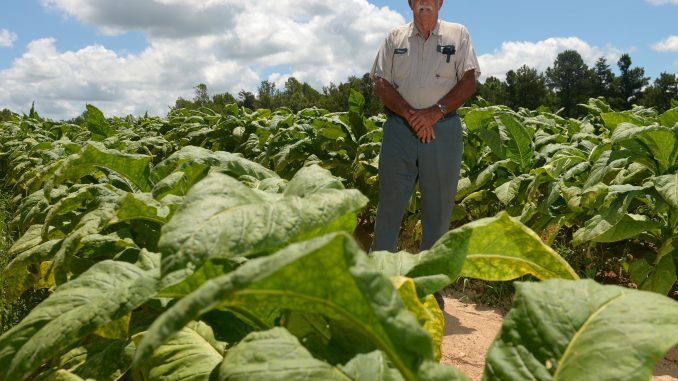
RALEIGH — Several local governments are moving to increase their regulation of tobacco use, causing pushback from N.C. citizens and municipalities.
North Carolina implemented statewide smoking laws in 2010 that required enclosed areas of almost all restaurants and bars to be smoke-free effective Jan. 2, 2010. House Bill 2 in 2009 also banned smoking in enclosed areas of hotels, motels and inns if food and drink are prepared there. That law built on a prior bill, House Bill 24 in 2007, which allowed local governments to restrict smoking in public places.
The 2007 law allows local governments to adopt and enforce ordinances, rules and policies restricting or prohibiting smoking that are more restrictive than state law. The law also allows those restrictions to apply in local government buildings, on local government grounds, in local vehicles or in public places.
On Jan. 15, the Elon Board of Alderman voted to prohibit “any person to smoke or use e-cigarettes on town sidewalks and streets in the Downtown Business District.”
The town had previously banned smoking in town-owned or leased municipal buildings and the surrounding grounds and in municipal vehicles. The new ordinance added town sidewalks and streets in the town’s downtown area.
College students from Elon University spoke to WGHP-TV after the town vote, calling the ban unfair, especially as the ordinance relates to vaping.
“I don’t really get why the public is concerned about it,” Sam Moreland said. “I don’t know why it bothers people. It’s not like cigarettes, it doesn’t smell bad really.”
Moreland said he believes the fines associated with the ban are not enough to get people to drop their habit and that the move has motive.
“I think it’s because they don’t want kids Juuling, which, I mean, makes sense; I get it. But people are going to do it anyway,” Moreland said to WGHP.
Richard White, Elon town manager, told WGHP that the move was meant to lead to a healthier community.
“It’s one more step the town can take to be proactive to encourage our community to be a healthy community and develop healthy habits,” he said.
In Randolph County, the county’s board of commissioners is considering this ban on the use of all tobacco products — including chewing tobacco and other smokeless products. That board, which is comprised of a 5-0 Republican majority, voted 3-2 at their January meeting to ban the use of all tobacco products on all local government property, including in government-owned vehicles and on government-owned parking lots.
That vote was to approve a rule enacted by the county’s health board and required a unanimous vote to pass at the first reading of the ordinance. At the meeting, the county’s health director, Susan Hayes, said the ordinance would preclude a person from smoking in a private vehicle if the person’s car was in the courthouse parking lot.
After the Randolph County vote, the towns of Archdale and Randleman voiced opposition to the ordinance.
“The city already has rules that govern our employees on city-owned property and vehicles,” said Zach Hewett, Randleman’s city manager.
While Hewett said his council did not vote on a resolution opposing the county’s proposal, the consensus from his council was that the city did not need additional regulations from the county on smoking and tobacco use.
In Archdale, the city manager wrote the Randolph County Commissioners a letter opposing the county-wide tobacco rule. In his letter, Archdale City Manager Zeb Holden said that the council “wishes to respectfully, yet firmly, express its unanimous opposition to the Prohibition of Tobacco Products language currently being considered by the Randolph County Board of Commissioners. While clearly well-intended, this Health Department Rule fails to take into account the resulting impacts on the County’s municipalities.”
Holden went on to cite several concerns with the ordinance being considered, including that enforcement of the ordinance “would be nearly impossible in many circumstances,” and that the council believes the county lacks the statutory authority to enact the tobacco ban within the town’s jurisdiction.
Holden closed his letter by stating the city of Archdale’s support for “creative measures to improve the health of all Randolph County citizens.” But, he said, “the language and the methods in the currently proposed rule create unenforceable circumstances and undue burden on the municipalities of Randolph County. If cities wish to enforce such regulations, they can adopt a resolution stating as much as permitted by NCGS 153A-122(b).”
North Carolina is the leading tobacco-producing state in the U.S., with more than 330 million pounds produced in 2017. In 2018, the U.S. Food and Drug Administration indicated it would revisit a ban on menthol cigarettes nationwide in an effort to reduce smoking. Efforts in Elon and Randolph County follow other local government bans including Nags Head, Orange County and Waynesville.
The Randolph County Board of Commissioners will hold another — potentially final — hearing on the proposed ban on tobacco use on Feb. 4.



